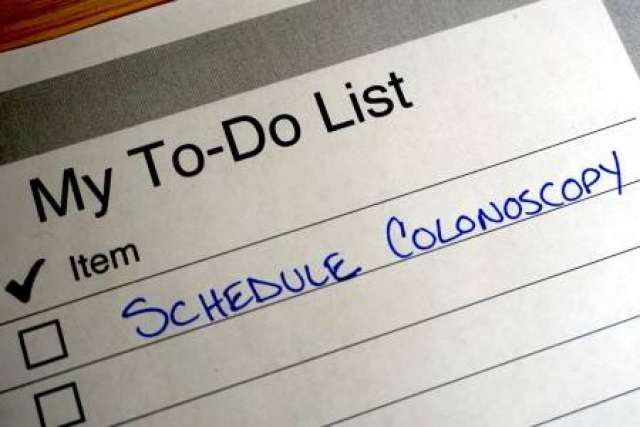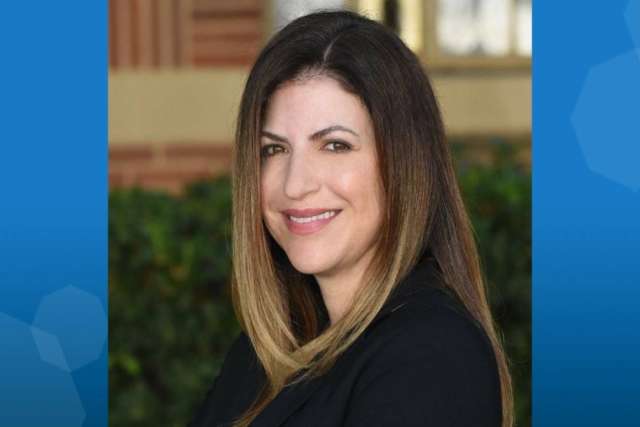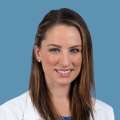Photo: Devin Dillon
In the first three months of 2022, Devin Dillon underwent her first colonoscopy at UCLA Health, found out she had colon cancer and learned after surgery that she was cured.
Dillon, 48, credits her early diagnosis and excellent outcome to the expanded eligibility for colon cancer screening adopted last year. Guidelines in the U.S. now recommend an initial colonoscopy at age 45 instead of 50.
“I’m sort of the reason they now have the screening earlier,” she said. “It’s because younger people between 45 and 50 are developing colon cancer and may not have any symptoms or risk factors.”
That was the case for Dillon, superintendent of PreK-12 Operations for UCLA.
“I don’t have any family history of it,” she said. “I don’t have any of the pre-indicators. I’m not overweight. I work out every day. I try to eat really healthy. I’m not a smoker. I don’t drink. I do CrossFit.”
Eligible for screening
When Dillon had her annual physical in October 2021, her UCLA Health primary care physician explained that she was now eligible for colon cancer screening.
“I hadn’t really thought about it,” she said. “I’ve always kept up with mammograms and that sort of thing. It wasn’t in my awareness.”
Last May, the U.S. Preventive Services Task Force issued a new recommendation that colon cancer screening for people at average risk should start at age 45.
Colon cancer is the third leading cause of cancer death in men and women. A family history of colon cancer as well as obesity, diabetes, smoking and heavy alcohol use are risk factors. Rates of colon cancer are higher among the Black and Native American populations.
Dillon’s doctor told her she could opt for an annual stool sample test to look for blood or undergo a colonoscopy for the first time. If the stool sample finds blood, patients need to follow up with a colonoscopy.
“I just thought that I would do the colonoscopy because it sounded like if you went in and had a negative result, it would be good for 10 years and that sounded better to me than having to do something every year,” Dillon said.

Dillon scheduled a colonoscopy for early January with Adrienne Lenhart, MD, a UCLA Health gastroenterologist based in Torrance.
Dr. Lenhart said the aim of the revised guidelines was to catch more cancers at an earlier stage and to help prevent early onset colon cancer.
“Our primary goal with screening colonoscopies is to prevent the development of colon cancers as well as deaths from colon cancer,” Dr. Lenhart said. “If we detect colon polyps, which are benign, precancerous growths in the colon, we can remove them during the colonoscopy and prevent colon cancer from developing. Screening colonoscopies can also help identify colon cancers at the earlier stage where treatment is more favorable and potentially curable.”
Abnormal results
During Dillon’s procedure, Dr. Lenhart removed 10 small polyps, which all turned out to be benign. She also found a larger growth, which needed to be removed two weeks later by a different specialist, in a procedure called endoscopic submucosal dissection (ESD).
The biopsy results came back showing cancer.
“To find out I had cancer was really surprising and just shocking,” she said.
“I felt really good going into the colonoscopy,” she said before her March surgery. “I feel really good now. I don’t have any symptoms. I don’t feel sick. I feel perfectly fine.”
As colon cancer advances, Dr. Lenhart said, symptoms may include gastrointestinal bleeding, bowel obstruction, nausea, weight loss and constipation or diarrhea.
“Polyps and early cancer can often be asymptomatic,” she said. “The point is to be able to detect things early. Not all patients are going to have GI symptoms.”
Getting good news
Dillon underwent a laparoscopic partial colectomy in early March to remove 12 inches of her colon as well as 48 lymph nodes to see if the cancer had spread. Her surgeon, Dr. Jonathan C. King, surgical oncology, made the incision at the site of her old Caesarean section scar, plus two additional incisions. She spent four days at UCLA Santa Monica Medical Center.
“I had really amazing care,” she said. “I just really appreciate the care the doctors, nurses and nursing assistants gave to me in that time.”
Waiting for the pathology results was really difficult, she said.
“You’re sort of preparing yourself for the worst-case scenario or needing additional treatment or surgery or chemo or radiation,” she said. “You go through all the different scenarios in your mind.”
Two weeks later, she found out that she was cancer-free and needed no further treatment.
“Just hearing the news was such a big relief,” Dillon said. “I just feel relieved and also grateful that I do have such good medical care and that I took the time to do the screening.”
Dr. Lenhart said she can’t say for sure what would have happened if Dillon had waited until age 50 for an initial colonoscopy. But she said based on the progression of colon cancer, a delay could have resulted in symptoms or the cancer could have spread elsewhere.
“Since we detected her cancer very early, there was no evidence of metastasis or spread,” she said. “The cancer was able to be completely removed with the surgery and that may not have been the case.”
Dr. Lenhart said Dillon will need another colonoscopy in a year. If everything looks good, she would have another in three years and then at five-year intervals.
“If we keep up with surveillance guidelines, I think the overall likelihood of recurrence is low,” Dr. Lenhart said.
Dillon, who will return to work April 4, said the experience of going from not knowing she had cancer to survivorship has been a whirlwind. As she shares her experience, she said she hopes others will get colonoscopies starting at 45.
“You just don’t know until you have the screening done,” she said. “If you’re fine, you don’t have to do it again for 10 years. Even if you might feel great on the outside, you don’t really know what’s going on inside your body until you get this done.”
Learn more about colorectal cancer screening options at UCLA Health.
Courtney Perkes is the author of this article.




